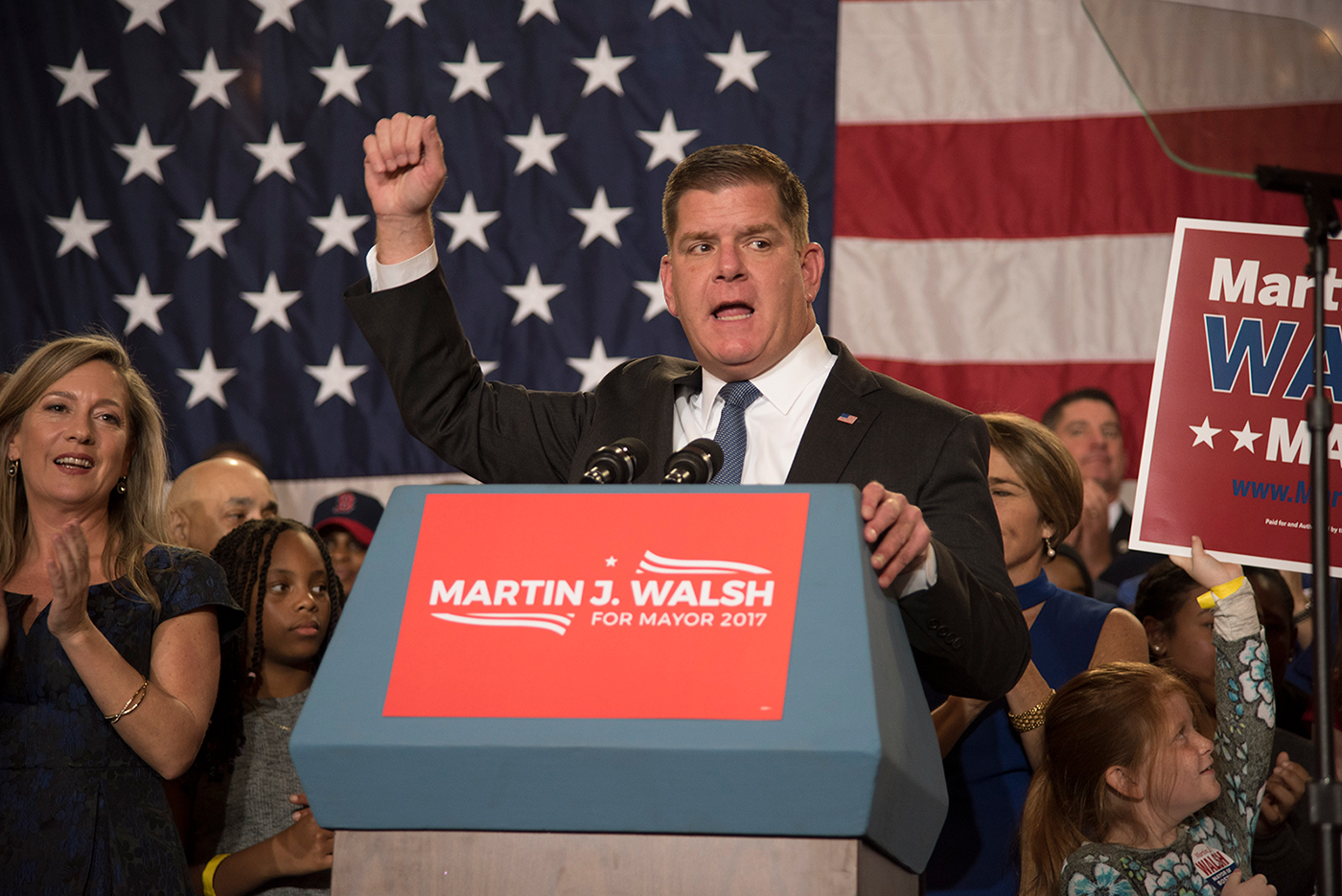
By Haley Lerner and Riley Villiers
City Council and the Walsh administration
Mayor Martin Walsh and the new members of the Boston City Council were sworn into office in January. For his second term as mayor, Walsh has said he is focusing on issues that affect the middle class and public education.
Since his re-election, the mayor committed $92 million to the rebuilding of the Long Island Bridge over the next three years. He has also proposed new rules that would ban investors from renting out homes on Airbnb.
The Boston City Council is planning to vote on Walsh’s short-term rental proposal in the upcoming weeks, according the City Councilor Michelle Wu, the measure’s leading advocate.
The Council has honored black immigrants who have made significant contributions to their communities and has passed a resolution urging the U.S. Congress to stop financially backing police and military operations in Honduras until human rights violations are investigated, since their swearing in.
Last year, the Council made history with the election of six women of color.
The current at-large members of the Boston City Council are Michelle Wu, Michael Flaherty, Annissa Essaibi George and Ayanna Pressley, all of whom are aligned with the Democratic party.
Josh Zakim, who is also a Democrat, represents District 8, where Boston University is located.
New ballot initiatives
The Massachusetts Income Tax for Education and Transportation Initiative is one of the initiatives on the 2018 ballot. According to the official petition for the amendment, the initiative would create an additional four percent tax, known as a surtax, on incomes above one million dollars.
The purpose of the surtax is to provide resources for quality public education and affordable public universities. It will also be used to maintain upkeep on roads, bridges and public transportation throughout the state.
The other main ballot initiative is the Massachusetts Gender Identity Anti-Discrimination Veto Referendum. According to The General Court of the Commonwealth of Massachusetts’ website, a “yes” vote for the measure supports upholding a law that prohibits discrimination based on gender identity in public places.
Voter registration push
On Sept. 29, the Boston City Council held a public hearing on Boston University’s campus regarding voter registration. The council’s Special Committee on Civil Rights deemed Massachusetts laws to be too restrictive.
The committee attempted to forge legislation that would require students in the Commonwealth to register at least 20 days before voting in a state election, but the legislation was struck down by the Suffolk County Superior Court in July. The decision has since been appealed by the state.
As a result of dismal voter turnout in the Massachusetts municipal elections in November, legislators pushed for automatic voter registration in the Commonwealth. This initiative was outlined in two bills on the Senate and House floors.
On April 23, Walsh signed an ordinance, originally proposed by Zakim, that will increase access to voter registration materials across the city.
















































































































